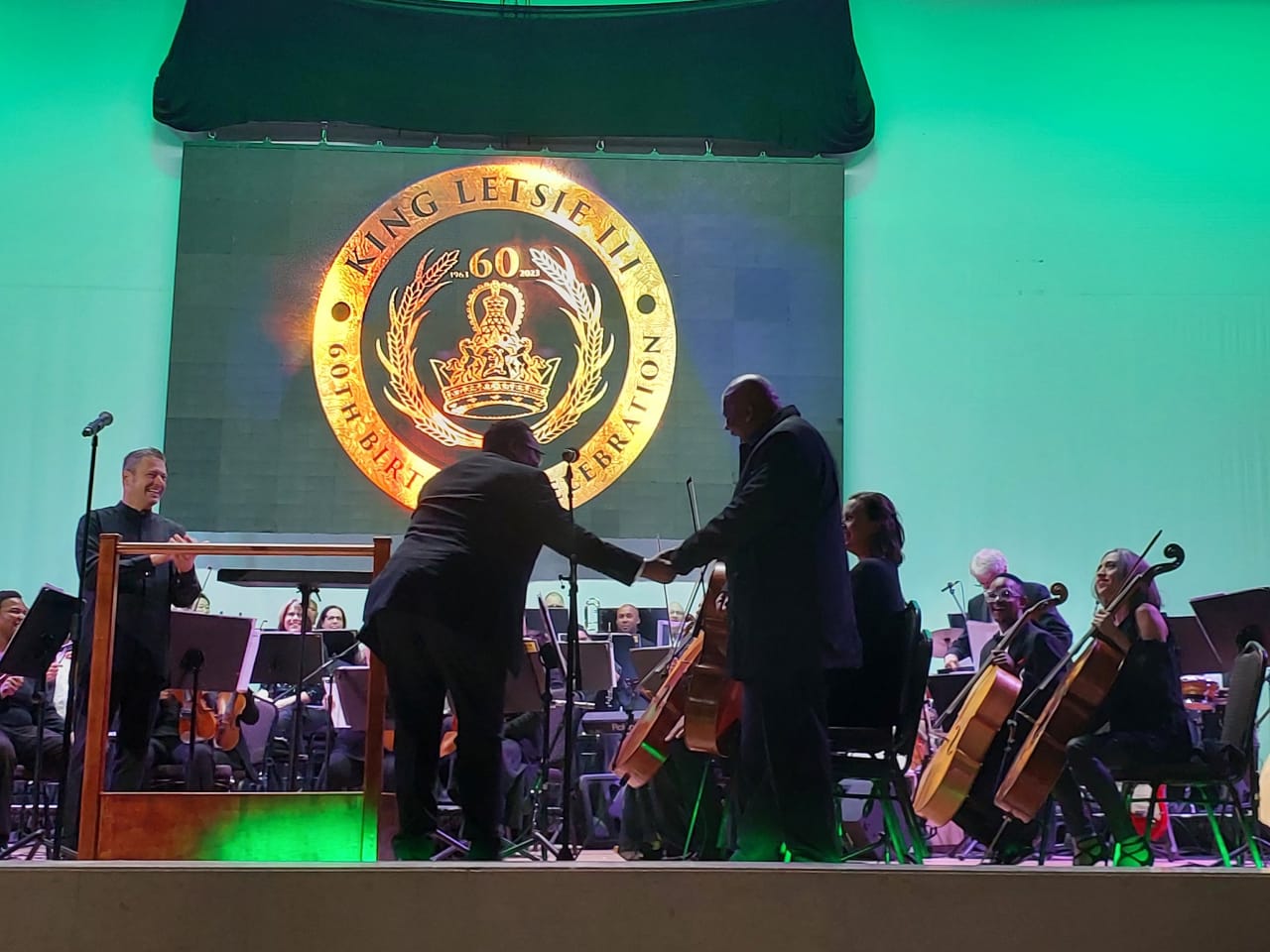Likhapha Ntlo-Ea-Lefu
July has been a month with a confluence of bliss marked by King Letsie III’s birthday celebrations, heartbreaking and crying moments precipitated by the murder of Khopolo Ntate Lisuoa Kholuoe, and brutal car accident that claimed the lives of Bokang Malome Vector Moleli, Lizwi Wokuqala and Musa Director Da Mos Teddy Lecton Nkondo and left Puleng Phoofolo and the driver injured.
These are painful moments for their families, friends, fans, and entertainment fraternity.
Plenty of us are wrecked by the passing of Malome Vector despite never having met him. And that is because his desertion alone resurfaces past losses of our loved ones. It ignites our fears surrounding death. I fear my own death. I do not want to die this young. I fear the death of my loved ones. My generation fears death, a trauma that is chiefly infused by colonialism and the decolonisation, thereof. No one wants a funeral in their backyard. However, disobediently, death happens anyway.
To some of us, he invaded our personal space with his gripping love songs. His songs assisted some to survive the hard times of their lives. And they now have memories of their lives etched to them, beautiful, hard, or painful. As romantic as they were, for me it was not about romance. I came to know of Malome Vector through Ichuu song he did with Megahertz, now identifying as Ntate Stunna. It became a song that I admired for how expressively creative its lyrics were.
Later on, I remember the times when Lerato and Dumelang featuring Blaq Diamond were released. During school holidays, they became the breath of my nieces and nephews. They were devoted to singing them word by word. It is the passion and enthusiasm in their eyes when singing “Lira tsa rona li re shebile. Basa kholoe ke u khethile. Ntate Molimo o re blesitse. Me and you till the day we die. Lerato le nana. Ke batla lerato le nana. Lerato le nana” and “u tsebe ke rata ha kupu li luma. Tau ea Lesotho u tla e bona ha e puruma” that has not escaped my mind. I used to play Lerato to put the youngest to sleep. And she would sleep for hours.
Eventually, they became my favourites. And when I met my friend who loved Nobody song and knew Malome Vector at a personal level, I became besotted with the person behind these hits. She described him as an extra bubbly person who always smiled and laughed during his stage performances, interviews, and studio recording moments.
She always found Tau ea Lesotho name to perfectly characterise him. All these memories punched hard when I heard he had passed away. I will forever remember him for these beautiful memories he inscribed in my life.
Malome Vector’s popularity amplified after signing with the allegedly notorious for cunning and conniving against artists, Ambitiouz Entertainment record label. Coupled with his talent, he transcended the borders of Lesotho and South Africa. Upon his passing, the deceased had since left the label and established his own.
Without a doubt, Malome Vector was a vessel of inspiration for many upcoming and aspiring artists in this country. Born in Lesotho where talent, art, and entertainment take a backseat in terms of visibility, investment, and appreciation, he was one of the privileged who got to do what many aspire for. He lived his dream. This validated their dreams and gave them hope despite being born in a country that shatters dreams.
In Malome Vector, this country has lost a gigantic ambassador. He ceaselessly represented us through his music and stage performances by wearing a flag and traditional attire. Apart from his social media feud with Ambitiouz Entertainment, I recall none. He was one of the people prominent for nothing but his talent. Often when a well-known person passes away, social media talks about giving one flowers whilst still alive. Malome Vector got his flowers while he was still alive. Of course, they would not come in the appearance of lilies and roses. They came in the form of magnitudes of people that filled the places where he was performing. They stayed, enjoyed his performances, and sang along with him. They showed him love and respect.
Author Chimamanda Ngozie Adichie depicts in her book, Notes of Grief, that “grief was the celebration of love, those who could feel real grief were lucky to have loved.” Today, the multitudes of Basotho are wounded by the passing of Malome Vector because they appreciated and loved his existence. We truly are broken. We grieve him. And we seek solace in his musical legacy. Goodbye, Tau ea Lesotho. May you sleep peacefully until we see you again.
Summary
- July has been a month with a confluence of bliss marked by King Letsie III’s birthday celebrations, heartbreaking and crying moments precipitated by the murder of Khopolo Ntate Lisuoa Kholuoe, and brutal car accident that claimed the lives of Bokang Malome Vector Moleli, Lizwi Wokuqala and Musa Director Da Mos Teddy Lecton Nkondo and left Puleng Phoofolo and the driver injured.
- And when I met my friend who loved Nobody song and knew Malome Vector at a personal level, I became besotted with the person behind these hits.
- Born in Lesotho where talent, art, and entertainment take a backseat in terms of visibility, investment, and appreciation, he was one of the privileged who got to do what many aspire for.

Your Trusted Source for News and Insights in Lesotho!
At Newsday Media, we are passionate about delivering accurate, timely, and engaging news and multimedia content to our diverse audience. Founded with the vision of revolutionizing the media landscape in Lesotho, we have grown into a leading hybrid media company that blends traditional journalism with innovative digital platforms.








